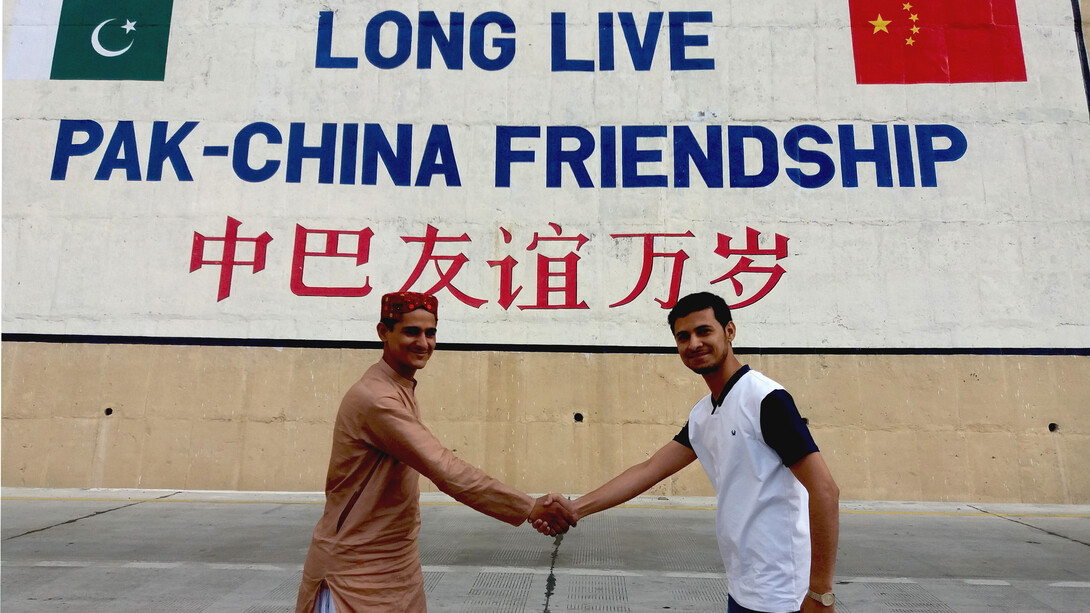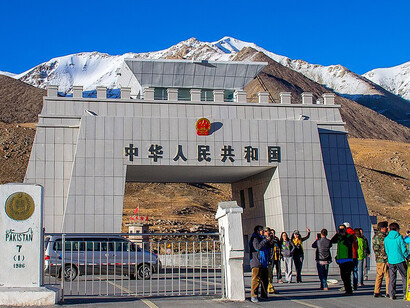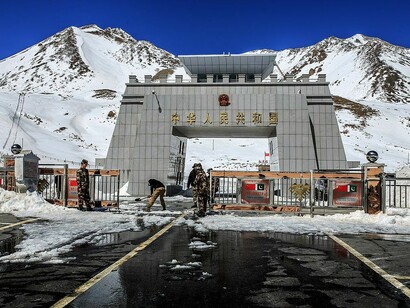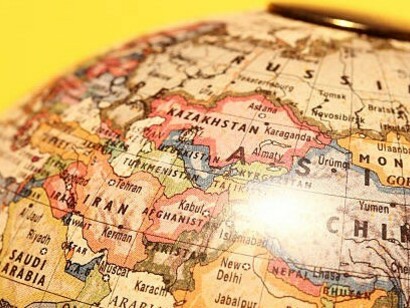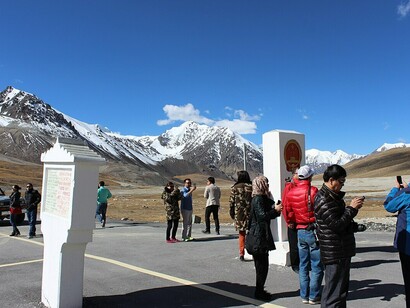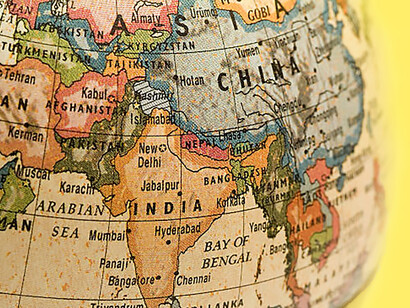The relationship between Pakistan and China has often been described as “higher than the Himalayas and deeper than the oceans,” a poetic depiction of one of Asia’s most durable bilateral partnerships. Since the establishment of diplomatic relations in 1951, Pakistan-China relations have evolved into a multifaceted strategic partnership encompassing political, military, economic, and people-to-people ties. Rooted in shared geopolitical interests and regional dynamics, this alliance has weathered various international transformations. As the global balance of power shifts eastward and China's Belt and Road Initiative (BRI) reshapes regional economic connectivity, Pakistan has emerged as a vital node in Beijing’s strategic calculus. However, the partnership is not without its challenges. Issues such as terrorism, regional instability, trade imbalances, and internal governance constraints in Pakistan influence the trajectory of cooperation. Despite these challenges, the mutual interests in regional security, economic development, and global influence continue to reinforce the significance of this strategic partnership.
Pakistan was one of the first countries to recognize the People's Republic of China after its establishment in 1949, establishing formal diplomatic ties in 1951. During the Cold War, both countries found common ground in their opposition to Indian hegemony and Western alliances. China supported Pakistan during the 1965 and 1971 wars with India, while Pakistan played a key role in facilitating the historic U.S.-China rapprochement in 1971 by arranging Henry Kissinger’s secret visit to Beijing. These events not only laid the foundation for a robust political relationship but also cemented mutual trust and strategic alignment.
Throughout the decades, both nations have expanded their cooperation beyond politics into defense and security. The strategic alliance was solidified further after India’s nuclear tests in 1998 and the 1999 Kargil conflict, prompting deeper defense and nuclear cooperation. China has become Pakistan’s largest supplier of military hardware and technology, and both countries regularly conduct joint military exercises and training programs. This level of cooperation is crucial for Pakistan, especially in the face of its ongoing tensions with India and internal security challenges.
The cornerstone of contemporary economic cooperation is the China-Pakistan Economic Corridor (CPEC), launched in 2015 under the umbrella of China's Belt and Road Initiative (BRI). Envisioned as a $62 billion investment, CPEC aims to transform Pakistan’s infrastructure, energy sector, and industrial base while providing China with direct access to the Arabian Sea via the Gwadar Port. This corridor includes roads, railways, special economic zones (SEZs), and energy projects designed to alleviate Pakistan’s chronic energy shortages and create new opportunities for economic growth.
CPEC is a strategic initiative for China as it seeks to circumvent the Malacca Strait and establish secure trade routes. For Pakistan, it presents an opportunity to modernize its economy, attract foreign investment, and reduce its dependence on Western financial institutions. However, the implementation of CPEC has been uneven, with several energy and infrastructure projects delayed due to bureaucratic inefficiencies, financing issues, and security threats. Despite these hurdles, CPEC remains a linchpin of the bilateral relationship and a model for BRI projects elsewhere in the region.
Security cooperation is a critical pillar of Pakistan-China relations. China has consistently supported Pakistan’s stance on Kashmir in various international forums, while Pakistan endorses China’s position on issues such as Taiwan, Hong Kong, and Xinjiang. Military collaboration includes joint exercises, defense production, and strategic consultations. Notably, Pakistan is a significant customer of Chinese defense equipment, including the JF-17 Thunder fighter aircraft, which is co-produced by both countries.
China’s concerns over the security of its personnel working on CPEC projects and its broader interest in regional stability have led to increased Chinese involvement in Pakistan’s internal security affairs. Pakistan has established special security divisions to protect Chinese nationals and infrastructure, particularly in restive areas like Balochistan, where separatist attacks have targeted Chinese workers. This evolving security partnership reflects China’s growing strategic footprint in South Asia and the Indian Ocean region.
Despite strong political and military ties, the Pakistan-China relationship faces several challenges. Terrorism remains a significant concern, particularly for China, as several attacks against Chinese personnel have raised alarm. Groups like the Balochistan Liberation Army (BLA) have explicitly targeted CPEC projects, viewing them as exploitative. Moreover, the presence of Uyghur militants in Pakistan’s tribal areas has raised concerns in Beijing about cross-border extremism affecting its Xinjiang province.
Another pressing issue is the growing trade imbalance. China is Pakistan’s largest trading partner, but the trade is heavily skewed in Beijing’s favor. Pakistan's exports to China remain minimal compared to its imports, leading to a persistent trade deficit. While efforts have been made to enhance market access for Pakistani goods—such as the 2019 Second Phase of the China-Pakistan Free Trade Agreement—progress has been slow due to Pakistan's limited industrial capacity and lack of diversification.
Internal governance issues in Pakistan, such as political instability, bureaucratic inefficiencies, and a weak legal framework, further complicate bilateral projects. The frequent change in governments and policy inconsistency has caused uncertainty for Chinese investors. Additionally, concerns over the transparency and sustainability of Chinese loans under CPEC have sparked criticism from various quarters within Pakistan and abroad.
The Pakistan-China alliance has significant regional implications. The growing defense and economic partnership is viewed with suspicion by India and has intensified the China-India-Pakistan security triangle. In particular, China’s increasing presence in Gilgit-Baltistan—territory claimed by India—has drawn sharp criticism from New Delhi. The strategic convergence between China and Pakistan has also complicated India’s regional strategy, especially regarding its connectivity ambitions and maritime security in the Indian Ocean.
For China, Pakistan serves as a strategic counterbalance to India and a gateway to the Middle East and Africa. The Gwadar Port, in particular, is central to China’s Maritime Silk Road strategy, providing a shorter and secure route for energy imports from the Gulf. Additionally, Pakistan offers China diplomatic support in the Muslim world, especially on sensitive issues like Xinjiang, which strengthens Beijing’s global narrative and shields it from broader international criticism.
Despite the challenges, numerous opportunities exist for expanding bilateral cooperation. In addition to CPEC, both countries can deepen collaboration in science and technology, education, agriculture, and climate change mitigation. China's expertise in digital infrastructure, green energy, and artificial intelligence could support Pakistan’s development goals and digital transformation. Joint ventures in e-commerce, fintech, and telecommunications also offer mutual benefits.
Moreover, people-to-people ties are gradually expanding. Thousands of Pakistani students are studying in Chinese universities, and cultural exchanges are increasing through Confucius Institutes in Pakistan. These soft power initiatives foster long-term goodwill and help to humanize the bilateral relationship beyond its strategic and economic dimensions.
On a broader scale, Pakistan can leverage China’s growing influence in multilateral institutions such as the Shanghai Cooperation Organization (SCO), BRICS+, and the Asian Infrastructure Investment Bank (AIIB). Active participation in such platforms can help Pakistan diversify its foreign policy and attract new sources of investment and development assistance.
Pakistan-China relations have matured into a comprehensive strategic partnership shaped by shared interests, regional imperatives, and mutual trust. While the alliance offers immense potential for economic development, strategic cooperation, and regional integration, it is also constrained by internal vulnerabilities and external geopolitical complexities. Managing the challenges of terrorism, trade imbalance, and governance is essential for maximizing the benefits of this partnership. With careful planning, mutual respect, and sustained commitment, Pakistan and China can continue to build a future-oriented relationship that not only strengthens their own nations but also contributes to broader peace and prosperity in the region.
